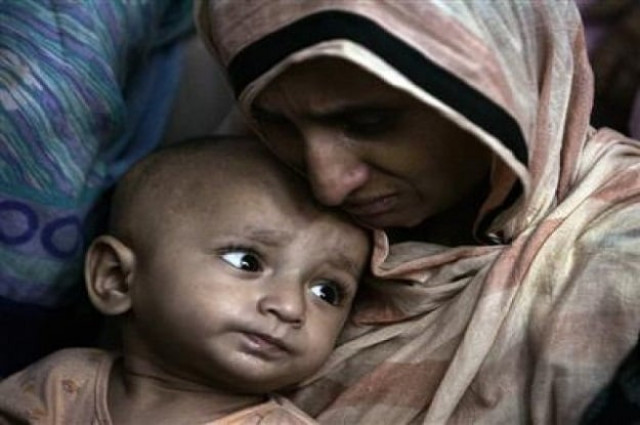One death too many: One death in childbirth every 37 minutes
30% of deaths are preventable if healthcare systems improve, say experts

Experts expressed concern over the absence of family planning policy in the country. PHOTO: FILE
Experts expressed concern over the absence of family planning policy in the country. They urged all the provincial health departments to formulate it urgently to save lives of women who die from childbirth complications. They were talking to The Express Tribune in connection to the World Population day which is being observed worldwide every year on July 11.
Read: Women in rural Pakistan champion the cause of population planning
According to the Population Council fact sheet 2015, it is estimated that every year on an average 14,000 mothers die in the country. However out of these 4,500 maternal deaths can be easily prevented through strengthening healthcare system, especially at primary level. There could be a significant drop in mortality rates if the huge gap of unmet need for family planning which currently is 20 percent, is addressed.
Province-wise maternal deaths
It is estimated that 6,000 women die annually due to pregnancy-related complications in Punjab, 3,000 in Balochistan, 2,800 in Sindh and 1,700 in K-P.
Expert View
Dr Nasser Mohiuddin, Director National Institute of Population Studies (NIPS) said the population of the country is rapidly increasing as we fast approach the 200 million mark.
“It is unfortunate that after devolution of Ministry of Health (MoH) we lack family planning policy. This could help us find out the best possible methods of family planning to control increasing population,” he said speaking The Express Tribune.
He said couples who want to adopt family planning methods are unable to because of unavailability of family planning services in their areas.
There are only 3,000 family welfare centres across the country. There are 32 million women who are in reproductive age which is insufficient to cater to the need, he added.
Read: Addressing the baby boom: Women’s reproductive health an urgent issue
Dr Mohammad Mir, Director Programmes, Population Council said in rural areas the situation of healthcare facilities is very poor and even lack the capacity to handle a normal delivery case.
He said comparatively maternal mortality rate in Balochistan is the worst at 996 per 100,000 live births in 2012-2013, up from 785 per 100,000 live births in 2006-2007.
“The major reason is that they have to travel long distances to give birth to a child in a proper healthcare facility. Many die during travelling as they are transported on trolleys” he said.
Qadeer Baig, country representative, Rutgers World Population Foundation – Pakistan, said in order to improve maternal health in Pakistan we need to engage men - fathers and husbands. We need to ensure through them timely access to health services to avoid ‘three delays’. The government had to invest in meeting the unmet needs of family planning in Pakistan.
Published in The Express Tribune, July 11th, 2015.


















COMMENTS
Comments are moderated and generally will be posted if they are on-topic and not abusive.
For more information, please see our Comments FAQ